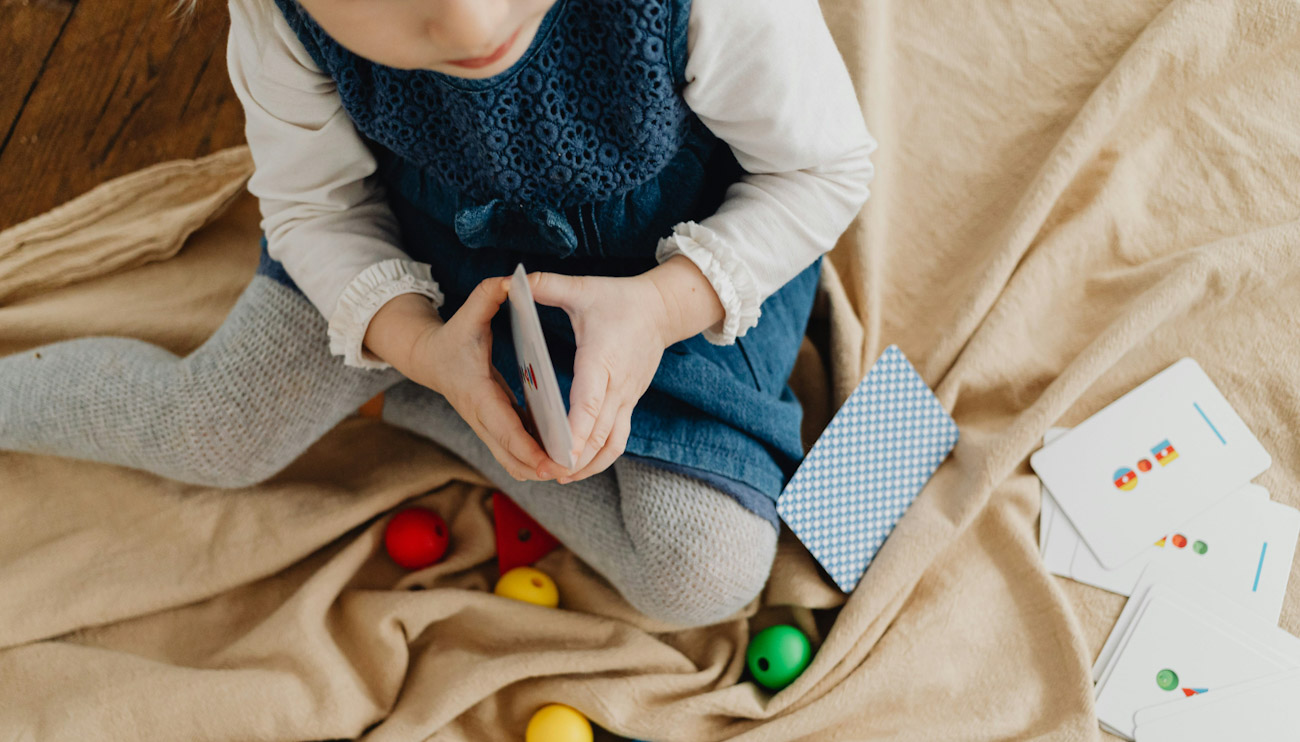
Flash cards are an excellent communication tool in early childhood education. They can help children explore concepts through visual communication, which makes them suitable for all age and ability groups. Flash cards can even feature Braille or other forms of tactile communication.
Educators should ensure they are not using cards for teacher-directed lessons. Let children take the lead in how they are used. Let the play be open ended and unconventional. Children will invent their own games.
Children who like flash cards may be interested in card games and other games with rules. They can make their own cards using cardboard and scissors.
EYLF Learning Outcomes
Flash cards specifically connect with the Early Years Learning Framework's fifth learning outcome: Children are effective communicators. They teach children to:
- interact non-verbally (5.1)
- engage with a range of texts (5.2)
- express ideas and make meaning using a range of media (5.3)
- understand how symbols and pattern systems work (5.4).
Learning experiences
Play with language
Children can use flash cards to improve their language and literacy skills. Cards can be used to:
- learn the alphabet
- match pictures of objects to their names
- start conversations
- tell stories or communicate a sequence of events
- and expand their vocabularies with new words.
Play with maths
Flash cards can feature numbers, tallies and objects in various quantities. They can help children to count and identify shapes, colours, and patterns. Cards can also be sorted and organised into different concept groups (e.g. blue objects, people with dark hair).
Talk about feelings
Flash cards can feature pictures of people with various facial expressions. Children can identify what the people are feeling and use them as a starting point to talk about their own emotions and experiences.
Cards can also feature pictures of people performing actions, which can encourage participation in drama. Can you do what this person is doing?
Remember things
Children can challenge their memory through picture recall. Of course, educators can facilitate the traditional card game of memory, but educators and children can also develop their own memory games. What types of animals were in the cards?
Flash cards are also an excellent communication tool for reminding children about daily routines and events, or the steps in a process like handwashing.
Make flash cards
Educators can help children:
- choose a theme for the flash cards (e.g. animals, vehicles, native trees)
- draw or find pictures related to the theme
- write the corresponding names and or facts/stories on the backs
- and laminate the cards, or cover them with contact.
